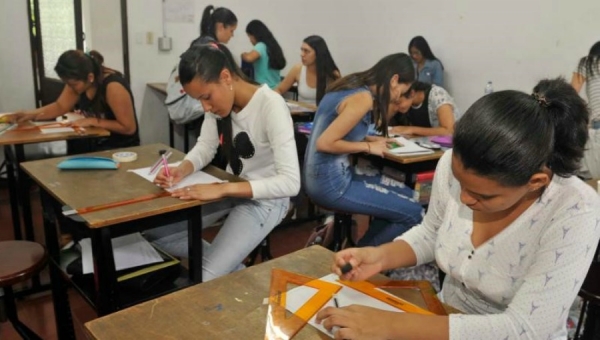World Bank, FDN Team-up in Finance for Medellin Public-School Expansions

The World Bank’s International Finance Corporation (IFC) and Colombia’s Financiera de Desarrollo Nacional (FDN) development agency jointly announced January 29 a COP$209 billion (US$74 million) investment in building new schools in Medellin.
The private-sector winners of concession bids to build and maintain the new buildings will enter into “public-private association” (PPA) contracts with a duration of 20 years.
Colombia’s Education Ministry and the Medellin municipal government will co-finance the projects, tapping the expertise of IFC and FDN.
The private concessionaires not only must construct the new buildings but also must “guarantee their good quality, their maintenance and provide cleaning, security and [computer-internet] connectivity,” according to the IFC-FDN joint press statement.
In all, 13 schools will be built, rebuilt, expanded or upgraded in Medellin, adding the equivalent of 290 new classrooms and 161 other public spaces — benefitting some 11,280 students, according to the agencies.
The school construction project is necessitated by Medellin’s decision to lengthen school days, effectively adding two-years’ of classroom education time-and-space for students, explained Education Minister Yaneth Giha.
The new PPA project in Medellin and a similar project in Barranquilla are Colombia’s first-ever PPA school-construction deals, according to the agencies. PPAs enable “efficiencies gained from experience in the private sector, such as introducing technologies that permit improvements in service delivery,” according to the agencies.
Payments to the concessionaires in the PPAs will begin upon successful completion of construction, as well as satisfactory maintenance – an incentive for the concessionaires to ensure timely, quality completion, according to the agencies. Unsatisfactory completion will result in payment deductions.
This scheme “has many benefits such as better access to financing, greater efficiency and a better distribution and transfer of risk,” added FDN president Clemente del Valle. “In addition, this is a scheme that guarantees optimal maintenance of the schools and quality services, which will assure the well-being and care of school children over the long term.”
The contracting agencies will measure 81 indicators of concessionaire performance related to infrastructure and services. For its part, the city of Medellin will be in charge of student education, hiring the teachers, school administration and school cafeteria service.
At the end of the concession period, the schools will revert to Medellin city ownership and operation, according to the agencies.
















